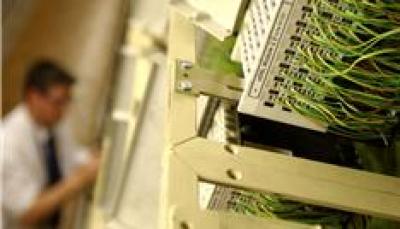Openreach To Pilot Closure Of Five Telephone Exchange Areas

Plan to close down 4,600 local telephone exchanges begins, as Openreach announces pilot closure of five exchange areas in the UK
Openreach’s goal of eventually weaning the UK off its analogue copper-based telecom network and onto fibre optic lines has moved one step further.
Openreach emailed Silicon UK last week to confirm the launch of a consultation with industry to use five pilot areas to “help further develop and test approaches for mass-migrating end users to new digital services using five pilot exchanges.”
This comes after Openreach last December announced its plans to close down 4,600 of its local telephone exchanges, as part of changes to its core network. This latest development is a pilot closure of five of these locations.
![]()
Copper network
The BT unit is taking action as it fundamentally changes its telephone network away from copper-based lines that provide both telephone and broadband services, towards a full fibre model known as Fibre to the Premise (FTTP), which requires substantially fewer telephone exchanges to support.
In the past, Openreach needed approximately 5,600 telephone exchanges located in most cities, towns and villages, in order to support its traditional copper-based network that spans the UK.
But the advent of fibre has drastically reduced the need for these exchanges, with only roughly 1,000 ‘super exchanges’ required to manage the fibre network.
Telephone exchanges are often nondescript buildings sitting unnoticed on city, town or village streets, that often occupy valuable real estate and land.
Some of these exchanges can be very small indeed (think garden shed), but some of them can be large buildings, as historically they were required to house lots of bulky telecoms equipment back in the day.
Modern equipment however requires a fraction of the space, and certainly a tour of London telephone exchange by Silicon UK years ago, revealed that large telephone exchanges can have plenty of empty space, with only a tiny portion of room being used by modern equipment.
![]()
That is not to say that the removal of these telephone exchanges will be straight forward, hence the long lead time needed to close these exchanges down.
This is especially true if the exchange hosts equipment from rival ISPs, or if it provides leased lines.
Openreach itself predicts that by 2025, the number of copper broadband customers being served by the 4,600 exchanges will fall to just 1 million.
Openreach has thus already begun switching customers off its old copper-based network as happened in the Wiltshire city of Salisbury last year. That move meant customers in Salisbury are no longer will be able to buy a traditional landline or broadband product that utilises the copper-based network that has existed in parts of the UK for as long as 140 years.
Exchange closures
Now Openreach has opened a pilot exchange consultation to gather responses from interested parties by 21 January 2022.
Openreach is proposing to close the five following telephone exchanges, namely Deddington (Oxfordshire); Kenton Road (Greater London); and Carrickfergus, Ballyclare, Glengormley (all in County Antrim, Northern Ireland)/ This includes the Whiteabbey exchange.
Openreach has decided on these locations as they are in the process of being switched over to a FTTP network, and there is a good mix of other communication providers and end customers.
These exchanges will begin to be closed from June 2022 until full withdrawal in June 2024.
“In December last year, we asked our Communications Provider customers for their views on plans to close 4,600 exchanges throughout the UK,” said David Belcher, Openreach’s strategy and transformation director.
“Today these exchanges support traditional copper-based phone and broadband but, as we upgrade the UK from analogue copper-based services to digital fibre-based ones, many exchanges will eventually become unviable for Openreach and Communication Providers (CPs) to operate from, so closing them down is a natural next step,” said Belcher.
“We initially proposed to focus on 100 exchanges where the benefits of closure are highest and we aim to close these buildings by December 2030, with most of the remaining 4,500 closing in the early 2030s – but we’re under no illusions that this is going to be a hugely complex programme to plan and deliver,” said Belcher.
“We also know from speaking to CPs that these timescales will be challenging, so we’re now consulting them on plans to develop and test approaches to mass-migrating their customers using five pilot exchanges,” he said. “We’ll continue to work closely with our customers and the wider industry to develop our strategy and deliver a smooth digital upgrade throughout the UK.”